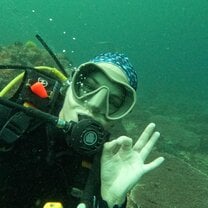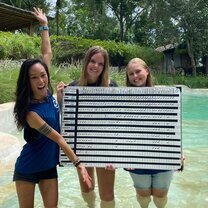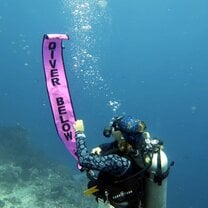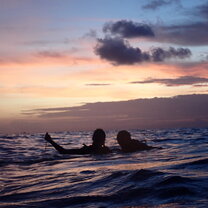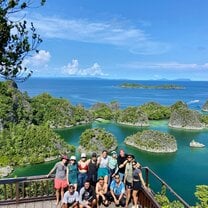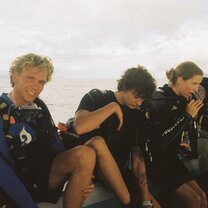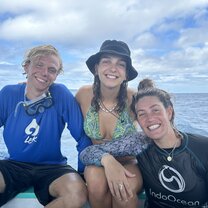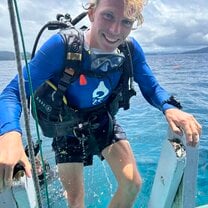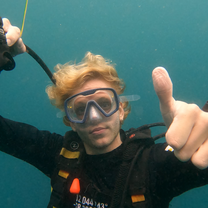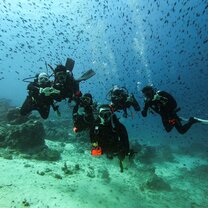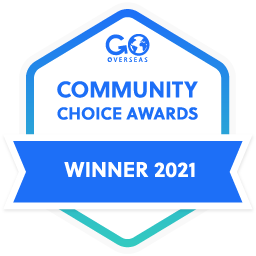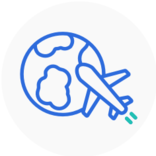What is your favorite travel memory?
I think that one of my favorite travel memory regards a holiday i spent with my girlfriend, we packed our bags and hit the road on the car, without a specific end point, stopping where we wanted, sleeping in the car, in the tend or in a hotel, deciding day by day. one night we ended up high in the mountains, in a tent, enjoying a gorgeous night sky and roasting marsh mellow on a bon fire made whit wood we found early that day on the sea side. The freedom and happiness felt in those days are a core memory for me.
How have you changed/grown since working for your current company?
Massively, working in this environment changed the way i approach certain aspects of teaching, it also helped me understand exactly what i love about the diving life, how fulfilling it feels to pass the passion for the ocean to others .
How to manage other people, balancing positive attitude, a friendly environment but also a firm hand to be able to instruct correctly was a challenging part of the job but helped me grow.
What is the best story you've heard from a return student?
Our students leave our program ready to face the diving and conservation world, and we take pride in having them become dive professionals that are able to sustain any difficulty. The best story of a return student would be from a student that had to face a dangerous situation in strong current, for which she had been trained, and while others had trouble and couldn't handle it she instead was able to react correctly and blessed her training, making the best out of an otherwise bad experience.
If you could go on any program that your company offers, which one would you choose and why?
Our program offers a dive master preparation and conservation learning, the locations where this happens are 3: Nusa Penida, Bira and Raja Ampat. the first one is where i my self partook in the program as an intern and the last one is the one i am currently co-managing, I would therefore choose Bira.
What makes your company unique? When were you especially proud of your team?
I would describe the strongest point of our company in it's well organized Dive master schedule. Our interns are well prepared following a perfectly organized schedule that ensures that they complete not only the minimum requirements but a training of higher standards then the main diving associations. Not only that but they are lead too take increasing responsibilities making sure that the professionals we form are not such only on paper but especially on the practical side. What makes me proud of my team is how we can trust each other to fill in every possible mistake that one might make, creating many layers of control and safety, making the working environment feel safe and supported.
What do you believe to be the biggest factor in being a successful company?
Organization and communication play a vital role in any company, a proper scheduling system, and organization in handling things ensures that even the smallest detail is not overlooked and has a place in which it can be handled correctly. this avoids piling up of small issues that result in the end in big problems. A correct organization would, although, be useless without proper communication. a healthy not one-sided communication with colleagues of any level helps everyone to understand and avoid mistakes.

